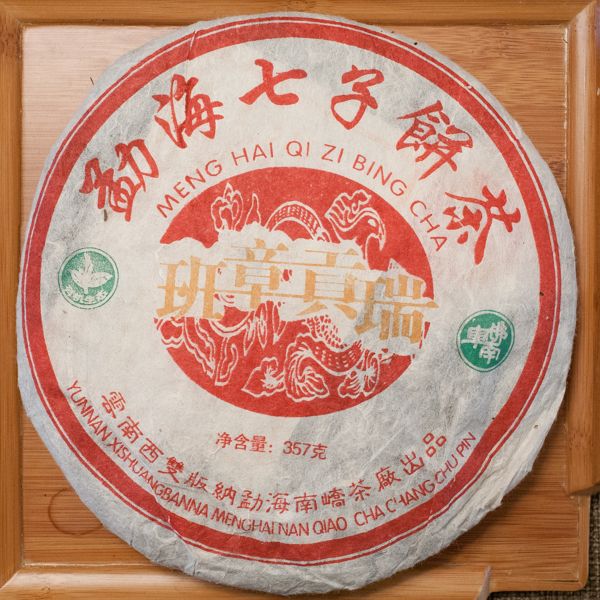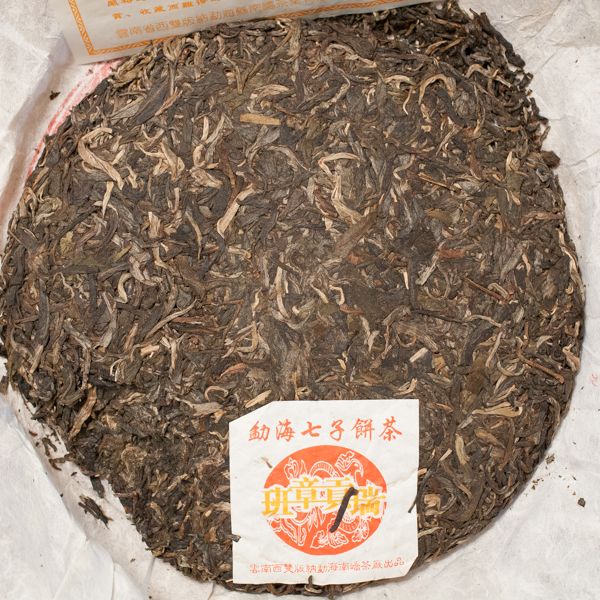

To this point by Shah, this is why I personally like Laoman'e more than LBZ, (especially when price is considered, but sometimes without factoring in price). It's not like they are that far away geographically anyhow...but the high notes of LBZ flutter away, where as Laoman'e doesn't have many high notes to begin with, and the ones that are there are gone within just a couple/few years. It's all low and thick later on.Anyways, one thing I should warn you, is that LBZ does not retain high notes as it ages. They get all walnuts, aged/fermented stone fruits--more apricots than plums, deep woods, and mellow sweetness. The huigans lessens, and the activity in the mouth is less emphathetic. The niceness of aged banzhang materials tends to be about mouthcoats of shimmering sweet flavors, kinda hard to describe, except as an aged huigan that spills instead of spouts. The young tea is relatively different. Never had an old banzhang with that strong orchid note.
Methinks your Mengsong has been stored dry and cold.shah82 wrote:/me winks...
But a good first stage aged Mengsong has both high and low notes. Why compromise?
I can't tell if you are making fun of Mengsong or not - I'm a fan though. Mengsong's low notes never dive deep like Laoman'e. I think the complexity also swings in LME's favor, but that depends on the material.MarshalN wrote:Methinks your Mengsong has been stored dry and cold.shah82 wrote:/me winks...
But a good first stage aged Mengsong has both high and low notes. Why compromise?
I think Douji's bricks are some of the only things they produce with value anymore; all their other teas are priced into the stratosphere.tony shlongini wrote:I recently opened one of those teeny Douji bricks, and have been enjoying the heck out of it. It looks like a thick credit card.
These are some terrific values.
Description courtesy of Samovar. http://shop.samovarlife.com/Puerh-Tea-B ... a-s/57.htm[l]ike the ancient, mist-shrouded trees used to produce pu-erh, these leaves have lost all sense of time—infuse them again and again as they continue to emit fantastically dark flavors of the Cedar Forests of the Mesopotamian gods of Gilgamesh and moss-covered igneous rock floor of the abode of Akheloios, the river god of ancient Aitolia.
Is that the" Samovar maidens ecstasy organic" or the velvet cacao organicedkrueger wrote:Right now I'm enjoying some pu-erh, it is[l]ike the ancient, mist-shrouded trees used to produce pu-erh, these leaves have lost all sense of time—infuse them again and again as they continue to emit fantastically dark flavors of the Cedar Forests of the Mesopotamian gods of Gilgamesh and moss-covered igneous rock floor of the abode of Akheloios, the river god of ancient Aitolia.
Description courtesy of Samovar. http://shop.samovarlife.com/Puerh-Tea-B ... a-s/57.htm